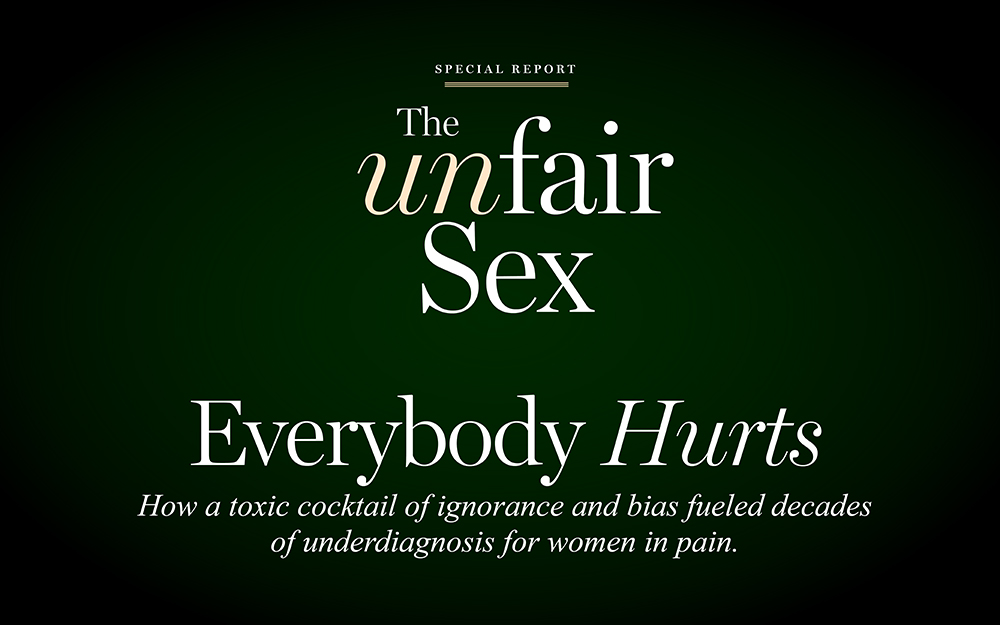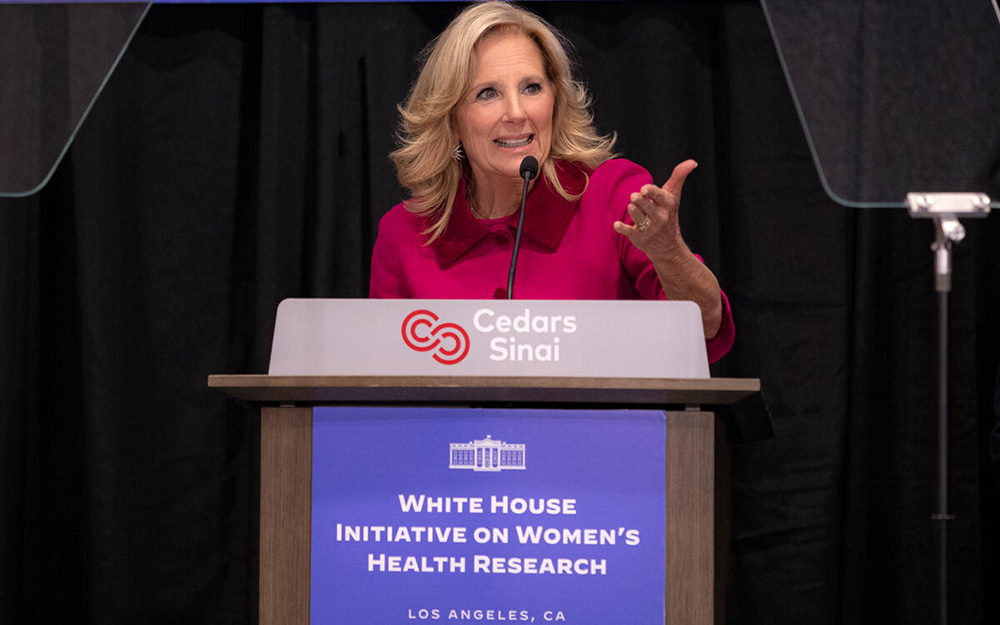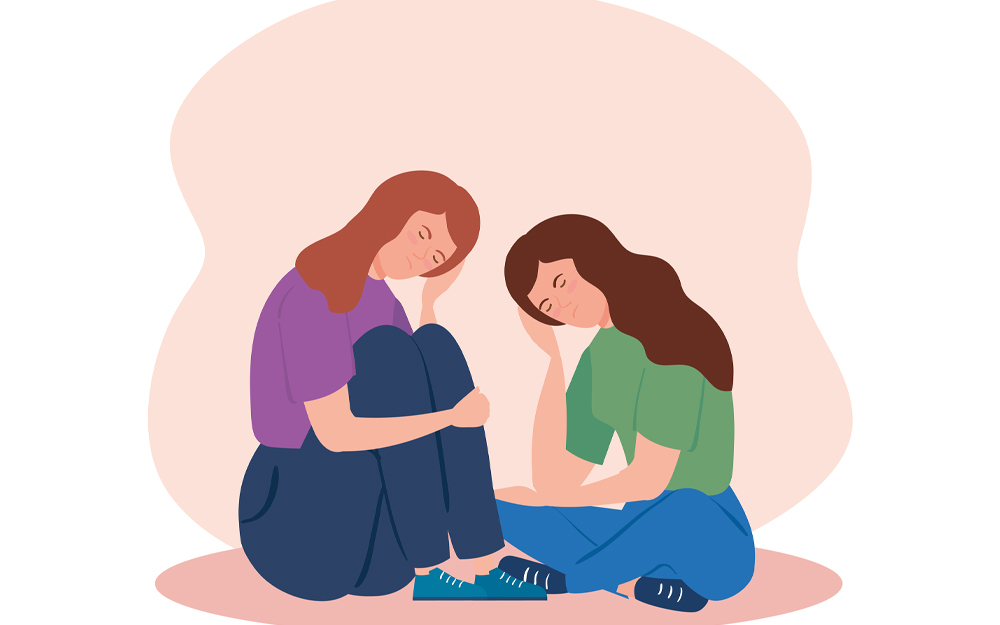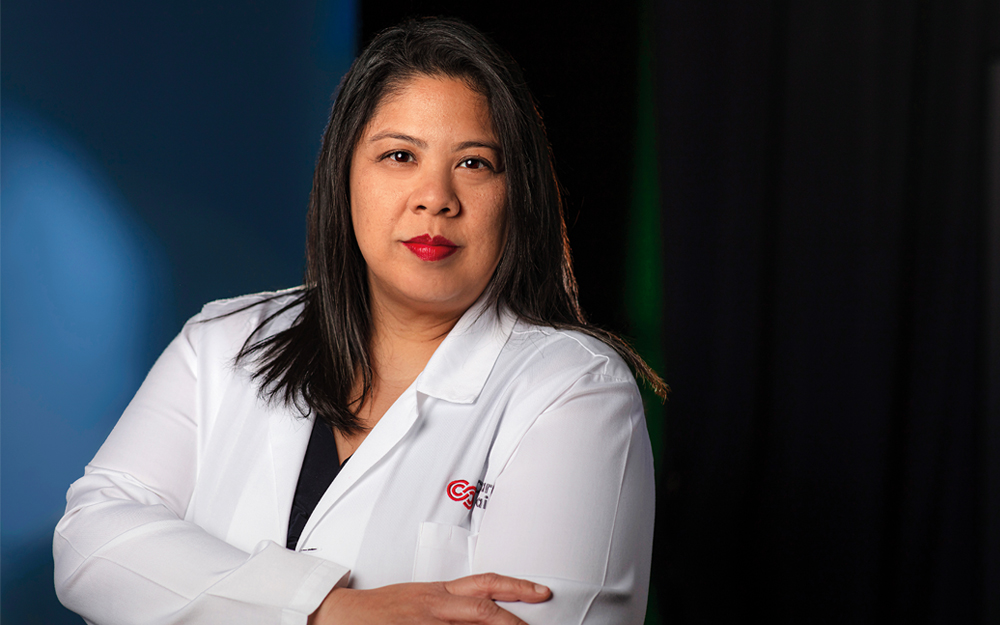Medical providers featured in this article
In Brief
{{cta-block}}
The medical field has a long history of dismissing women's pain, despite actual differences between how the sexes interpret it. In women, pain is more intense than in men. In many cases, even with the same disease, studies show that women and men experience pain in different body parts and to different degrees. The roots of these sex differences likely lie in the complexities of hormonal functions, gene expression and neurobiology—and the connections aren't fully understood.
Perhaps this is why women seeking help from their doctors are frequently dismissed as "hysterical, emotional, not wanting to get better, malingerers and fabricating the pain, as if it is all in her head," according to a 2018 literature review on gender bias in healthcare.
Pain is, by definition, a physical and emotional experience that should be managed patient by patient, according to Cedars-Sinai Pain Center expert Mary Alice Vijjeswarapu, MD, assistant professor of Anesthesiology.
"The idea that women are more emotional about their pain needs a deeper dive," she says. "We know pain has a psychological impact regardless of gender, and that can present in different ways for different patients. Women are just traditionally written off more."
Recent research suggests that, for one painful autoimmune condition, the tendency to dismiss women, coupled with a lack of research into sex-based differences, may be to blame for decades of underdiagnosis.
Ankylosing spondylitis (AS), a rheumatologic condition that inflames the spinal joints, was long thought to be overwhelmingly a man's disease. We now know that women make up at least a third of AS patients, if not half. The disease has long been defined by its most common symptoms: lower back pain and stiffness. New findings show that women with AS also experience neck, hip and joint pain, which means they may suffer more complications and a worse quality of life while waiting for the correct diagnosis.
"The diagnosis just got missed for so long—women's symptoms were minimized by doctors who thought that women didn't get this disease and that their back pain came from having a baby," says Mariko Ishimori, MD, interim director of the Division of Rheumatology.
Although, nationwide, more men than women die of opioid overdoses, drug fatalities are rising in middle-aged women. This may be due to the fact that women are twice as likely to be prescribed opioids. In addition, a growing collection of studies indicates that women develop addiction more quickly than men.
Ishimori says women need to take their own pain seriously and be open and detailed in discussing it. More importantly, she says, doctors need to listen carefully.
"As physicians, we should be detectives," Ishimori says. "When a patient doesn't mention back pain because she doesn't want to be seen as a complainer, that means we're missing the complete picture. It's the job of physicians to draw those facts out by asking pointed questions. You have to be open to every possibility when you meet somebody."
Doctors must first and foremost recognize pain and tailor an individualized search for the source of the problem, says Howard Rosner, MD, director of the Cedars-Sinai Pain Center.
"No matter who is sitting in front of us, we've got to believe what they're telling us," Rosner says. "They should never be minimalized or trivialized. We also have to understand that physiological and anatomic dissimilarities can make a difference, and we're still learning a lot about that."
Revelations about variations in AS point to a need for greater study of a range of inflammatory conditions, Ishimori says, especially since 80% of autoimmune patients are women. Rheumatoid arthritis, Sjogren's syndrome and lupus—diseases in which the immune system attacks healthy tissue and organs—are chronic and debilitating. New funding to study their causes and symptoms will help investigators consider their various manifestations across the sexes.
Cedars-Sinai researchers are investigating connections between lupus and heart disease, if stem cell infusions could benefit lupus patients and whether certain drugs can prevent the condition in women who are at risk for developing it. The resulting knowledge will help physicians more quickly and accurately alleviate pain—in all kinds of patients.
READ MORE STORIES IN THIS SPECIAL REPORT
Hearts and Minds, Misconceptions, The Age Gap, Progress, Molecule by Molecule, Menopause Matters, The Unfair Sex






